| An edited version of this interview appeared in the print edition of the “Edge Davao” newspaper on Tuesday March 20th, 2018 |
Two years ago, twenty-four-year-old Celina Simone Enciso Jaldon had no desire to coach or teach sports. Now, she’s the first woman – and one of the youngest ever coaches – to be in charge of the men’s college football team at Ateneo de Davao University. To find the path to a future in football this young Davaoeña had to free herself from her parents’ loving embrace. She had to break stereotypes still prevalent in a society dominated by traditional Catholic views. In the process, she’s become a reluctant role model. “I wish I could stop talking about women empowerment, but there’s a need. I want girls to know you can do this.”
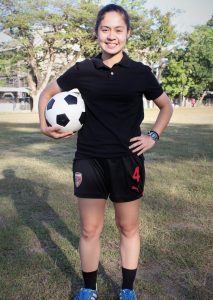
Simone, as her friends call her, grew up in Davao City. Her parents, Pañol and Cherry, moved from Zamboanga in western Mindanao to Davao in the 1980s. They left, because it got a little too messy and cramped for their liking. “In the 70s, Muslims from the Sulu Islands started moving to cities like Zamboanga to get away from an armed conflict between the military and the MNLF,” Simone explains. “Zamboanga isn’t big, and the cultural differences, in a traditional city, made living together a bit troublesome. That’s why in the 80s my dad’s family, with my mom, decided to find greener pastures elsewhere.”
Her parents quickly found out that at that time Davao City wasn’t very peaceful either. “My mom recalls that stabbings took place on a daily basis. There was a word that was used to describe this grim reality: ‘Nicaragdao’. Back then, the communist insurgents of the New People’s Army (NPA) controlled the Barangay Agdao, a poor settlement area. Locals called this place ‘Nicaragdao’ after the country Nicaragua in South America that was going through a civil war at that time.”
Act of rebellion
Despite the turmoil, the couple from Zamboanga persisted and started a family. After three boys, they were over the moon when Simone was born and they finally got the girl they had always wanted. Simone came seven years after their then youngest son.
Her eldest brother Iñigo is thirteen years older and works as a tattoo artist, surf instructor and real estate agent in Siargao. “Iñigo and I made a pact that after I earned my first paycheck I’d let him tattoo me. I didn’t follow through, but when my cousin got a tattoo of Mindanao in 2015 I knew I wanted that one too. It was my own little impulsive act of rebellion. No regrets though, I think it looks cool. Besides, nothing beats getting a tattoo from your own brother.”
Andoni, the middle brother, is a programmer and lives with Simone and their mom in Davao City. Simone: “He has a daughter, Aria, the first grandchild in the family. She lives with my brother’s former partner in the UK. He hardly ever sees his daughter except for video-calls on Sunday. After they separated he was down for a while, but he’s gotten his life back together. Aria is turning three this year and she’s lovely, intelligent and funny. She’s the apple of everyone’s eye even if she lives so far away.”

Like many other young Filipinos, Simone’s youngest brother Jacobo studied to become a registered nurse so he could work abroad. “He really wanted to go to Canada,” says Simone. “Unfortunately, a year or two before he graduated there was a leak in the final exams. Because of that, other countries became stricter about hiring Filipino nurses. The procedure of processing the papers to work abroad became too tedious for my brother. Even if he had gained the minimum working experience, he didn’t have enough savings to comply with the visa requirements at that time.” Jacobo worked at a bank for a while and then switched to working from home as a virtual assistant, a very common profession in the Philippines with a relatively good earning potential. Simone: “Nursing doesn’t pay much here. You’re lucky to make 10,000 pesos a month. That’s why I’m happy Jacobo found a job that pays well and allows him to work from anywhere as long as he has decent Internet.”
Doomsday prepper
Simone’s mother Cherry has been working at the Bureau of Internal Revenue for more than thirty years. She was recently promoted to Assistant Revenue District Officer. “Long overdue,” according to Simone, “she wanted to be a supervisor forever.” Being promoted meant being transferred to a different city, but luckily Simone’s mom was assigned to Davao. Mr. Jaldon is the Chief Operating Officer at 911 in Davao. “Before, my dad worked at San Miguel brewery for twenty years. He transferred to the government, first in tourism and later he became COO at 911. It’s the best fitting job he’s ever had, I think. My dad is a bit of a doomsday prepper. He reminds us to prepare our bug-out bags in case of disasters and he has all these survival kits lying around. At one point he was even considering getting a pump boat in case of a flood or tsunami!”
I made the team by just showing up, but I was fortunate to have a natural talent for football
Simone liked sports from an early age and she usually played with guys. “I had cousins who were into football and Iñigo played as well. One day, my aunt who lived next door, encouraged me to try out for the women’s varsity team of Ateneo de Davao University. She even lent me a pair of shoes. I was eleven, in the fifth grade, and extremely nervous. There weren’t any real try outs, so I made the team by just showing up, but I was fortunate to have a natural talent for football. Little did they know, I’d been playing at home with my cousins.”
Afraid that her parents would not approve, Simone kept the fact that she played for the varsity team from them for a while. “They thought I would get hurt or, and this is shallow, that my skin would get dark from being exposed to the sun a lot. Most Filipinos idolize light skin, that’s why we put whitening cream in pretty much every beauty product. A turning point was when I had a tournament outside of Davao. I needed my parents’ permission to take part. My aunt, the one who had encouraged me to play for the varsity team, helped me to convince them to let me go. My mom and dad came to watch me play and when they saw how much I enjoyed it they knew they had to let me be.”

Star struck
So Simone kept practicing, playing, and improving. When it was time to apply to colleges she knew she wanted to go to Manila where she would be able to test her skills against the best players. “I took a couple of entrance exams at different colleges. Ateneo de Manila University called asking me to try out with them in March. They flew me and two other teammates from Davao out there during their year-end celebrations and I got a glimpse of what college life would be like. I especially met a lot of athletes. I recognized some of the football players as their teams compete in the UAAP, the most competitive, and televised, college football league in the country. Safe to say, I was left feeling a little star struck.”
Simone and her two teammates were the only students from Davao to take part in the try outs. “It was still rare then for Mindanaoan players to go to Manila, but it’s become more common in recent years,” says Simone. “A week after the try outs I heard I got in. In a way, that’s when the hard part started. Not surprisingly, my parents were skeptical of my intentions. To present a convincing case to them, I had to cover all the bases. First of all, I knew they would approve of Ateneo. Unlike some other universities in Manila, Ateneo is not located in a ‘magulo’ or ‘unruly’ part of the city. Second, I really liked the other students that I would be playing with. And last, I knew that if I could secure a full scholarship they would probably support the move to Manila.”
It wasn’t the kind of football I had expected it to be. It wasn’t an art, it wasn’t beautiful
She worked hard to pass the entrance exams so at least she would be eligible for a scholarship. With her mind fully set on Ateneo de Manila, earning one was the final hurdle. Full scholarships for female football players are rare, but Simone managed to get one. Asked about why, she replies: “Because I was better than most.” For the next two years, her life would be consumed by playing football and studying. “Every day I got up at 5 a.m., then football practice until 8:30 a.m. and straight to classes afterwards. If I was lucky, I could nap during breaks in between classes.”
Secret agent
The love of the game kept her going, but gradually she felt that the experience was becoming empty. “It wasn’t the kind of football I had expected it to be. It wasn’t an art, it wasn’t beautiful. And in contrast to my high school days, we rarely won any games. I started doubting whether the amount of effort I put in every day was worth what I got out of it. I felt like I was missing direction. With the proper guidance I might have stayed, but the desire to explore other things eventually made me quit playing football after my second year in college.”
Simone’s coach tried to convince her to stay by offering her to cut down on practice time during the offseason. Although she wasn’t failing any courses, her grades were close to the minimum required to move up to the next year. She felt that the offer was unfair to her teammates – most of which only had partial scholarships – who did have to put in all the time and hard work. So she stuck to her decision. But no football meant no scholarship. Simone’s parents, especially her dad, didn’t want her to quit, but what mattered most for both was that she finished her studies.
“My dad suggested picking Management Information Systems (MIS) because then I could work at the CIA and become a secret agent. He sold me on that idea, I guess, because it felt like I would be fulfilling his childhood dream. So I went with MIS, joined a bunch of organizations and enjoyed my time in Manila. I regret quitting football, but the extra two years I got without the team helped me grow as a person.”
Riding carabaos
Being from Davao you might think Simone had some trouble finding her feet in Manila. Quite the contrary was true. “I had the best time in Manila,” she says. “I mean, I had wanted to get away for the longest time. It was easy for me to adjust and make friends.”
Simone did have to educate people from time to time about Mindanao. “In Manila, even educated people don’t know their geography very well. They would ask me: “Where is Davao? Is that in the Visayas?” Some people were also surprised that I spoke English well. Sometimes I’d get questions like: “Don’t you still ride carabaos over there?” or “Is it true you use horse drawn carriages to get around?” I’d usually just laugh it off and remind them that Davao is a lot safer than most areas in Manila. The only thing that would really annoy me was when I’d get comments on my accent because I mix both my Tagalog and English with Cebuano. It’s very Filipino to point out mistakes.”

As she was getting close to graduating, different ideas on next steps were fighting for supremacy in Simone’s head. “I finally decided that I wanted to be a lawyer. That way I could help others and earn enough to pay for getting a pilot’s license. Learning to fly seemed like a fun thing to do.” That idea didn’t take off – no pun intended – and she ended up going back to Davao. “I took a gap year and worked a bit for a local NGO, helping them get a mobile app running.”
After only a fortnight, my ambitions of becoming a lawyer were officially null and void
One unproductive year turned into two. Law school seemed like the inevitable choice. Before she made a final decision on that Simone went to visit her brother Iñigo. “Amidst the beautiful surroundings of Siargao I started doubting whether being a lawyer was really my thing. It seemed like a dark environment. I could hear a voice whispering in my ear: “Lawyers are liars and there’s so many of them already… Still, I went to law school for a whopping two weeks. I especially enjoyed the cases that read like gossip columns, except these were actually based on facts. During classes, I noticed that the teachers didn’t seem to enjoy talking about their subjects. It didn’t take long for me to realize what my instincts had been trying to tell me all along; there are better ways for me to help people. After only a fortnight, my ambitions of becoming a lawyer were officially null and void.”
License to coach
Not long thereafter, one of Simone’s former team mates from Manila asked whether she’d be interested in volunteering as a football coach with Girls Got Game, a roving sports camp for young girls in less privileged communities. They were planning a project at the Ateneo de Davao campus. “Beyond just volunteering as a coach I helped organize the whole thing. Later I even became the director of their Mindanao Chapter. Through Girls Got Game I bumped into Coach Noli Ayo, the Athletics Director of Ateneo de Davao University. He asked me whether I wanted to work in the University’s Athletics Office. It seemed like a good fit, but I wasn’t convinced. I didn’t think that being a coach was something to aspire to. Not a lot of people make it big as a coach and there was nobody in that profession I looked up to. Coach Noli made me see that what the Athletics Office did went beyond coaching. They try to make a positive impact around Mindanao. That, I felt, was something to be proud of and something I wanted to be a part of, so I accepted.”
In her new role as Special Projects Coordinator, she oversaw the organization of the 2017 Mindanao Peace Games. An annual event since its conception in 2015, the Mindanao Peace Games gather athletes of different religions and ethnicities from all over Mindanao. “I combined my work for the Athletics Office with coaching. The plan was to just coach the 12 under girls’ team, which I did for several months, but a few weeks before the school year started the position of head coach of the men’s college team opened up. Coach Noli asked me, but I was hesitant. I didn’t even have my coaching’s license yet. I took the two-week course, being the only woman there. When I got back I felt ready.”
However confident she might have been, when she got the group of college men together for the first training under her supervision she felt lost. So, Simone relied on her own experiences as a player, on what she thought the team needed. “Although I felt uneasy, it didn’t take long for me to figure out that we had to work on the basics first. Most players forget it’s not just about getting the ball, it’s also about thinking about other aspects of the game. I decided that my coaching would in large part be about helping my players think better on the field.”
Japanese javelin thrower
Once again, Simone found herself on a football field most days of the week. As she developed as a coach and through the projects she was involved in as part of the Athletics Office, it became clearer to her that sports is a great unifier – maybe even a catalyst for peace. An anecdote told to her by her father helped to illustrate that insight from a historical and personal perspective.
My great granduncle not only survived the war, but he went on to become the mayor of Zamboanga City
“My dad would tell me a story of his granduncle who got caught by the Japanese during World War II. One day he was pulled out of bed for what he thought would be an interrogation. They took him to the officer’s room where he was offered some sake. “Do you recognize me?,” the officer asked. Dad’s granduncle had no clue. The Japanese officer explained that they had competed against each other during a javelin throw event in Japan. The officer continued, saying that one gate in the camp was left open and that he should go through it and walk to friendly territory to a hut where provisions would be waiting for him. My great granduncle couldn’t fathom what he had just heard. He stayed a bit, chatted with the officer and finished his sake. When the time came, he got up and started walking. The soldiers ignored him. He walked for a few kilometers until he found the hut. Inside there was a gun and some food. He made it back to a safe place. My great granduncle not only survived the war, but he went on to become the mayor of Zamboanga City.”
“Cheer don’t jeer”
The first time Simone heard the story about her great granduncle she was in awe. “I grew up sort of accepting as normal that when people play there is hate. In some areas of the Philippines it can sometimes happen that guns are pulled during sports matches. With our projects across Mindanao we promote sports as a medium for dialogue and as a safe haven.”
At her own workplace, around the Ateneo de Davao campus, you’ll see large banners promoting a campaign called “Cheer don’t jeer”. They are there to remind audiences and players that it’s not okay to humiliate. “It’s part of the philosophy that you need others to do the good work,” explains Simone. “I started with the men’s team. They volunteer and last year they helped to organize the 2017 Mindanao Peace Games in Davao City. It’s my hope that they see it as an exchange. People often think volunteering is about one-sided giving. They don’t realize that they receive so much more from interacting and hearing other people’s life stories. It makes you aware of the experiences you share with others. I hope to instill that kind of thinking in my players.”

Chasing excellence
From playing in her aunt’s backyard to coaching her own team; football has stayed with Simone throughout her life. She took a couple of detours on the way, but she’s now clearer in her purpose than ever before. “Down the line I see myself coaching the national women’s football team. I think it’s a goal that’s definitely achievable. The experience coaching the guys is all valuable preparation. But, I mean, if I really advocate for women empowerment then I can’t keep giving to men, right?”
Everyone has a responsibility to change Mindanao for the better. It sucks to be indifferent
Being an advocate for young women is part of her aspirations but not an end in itself. “I believe that by coaching men I’m already advocating. The narrow point of view of some comes from that people don’t see it a lot. If me doing what I’m doing helps to open their minds, then it’s a good step in the right direction.”
Progress, especially in culturally diverse and politically complex Mindanao, is also a step by step endeavor. When asked, Simone deflects having some sort of special responsibility as role model for Mindanao’s younger generation. “Everyone has a responsibility to change Mindanao for the better. It sucks to be indifferent. You have to stand for something and I stand for what’s good. I am not perfect, but I like to chase excellence. Because then, even if you fall short, you’re not very far behind. When that train of thought permeates throughout Mindanao it will surely cause a ripple effect. Let’s start in our communities first and then go broader. That’s what I hope to continue doing.”

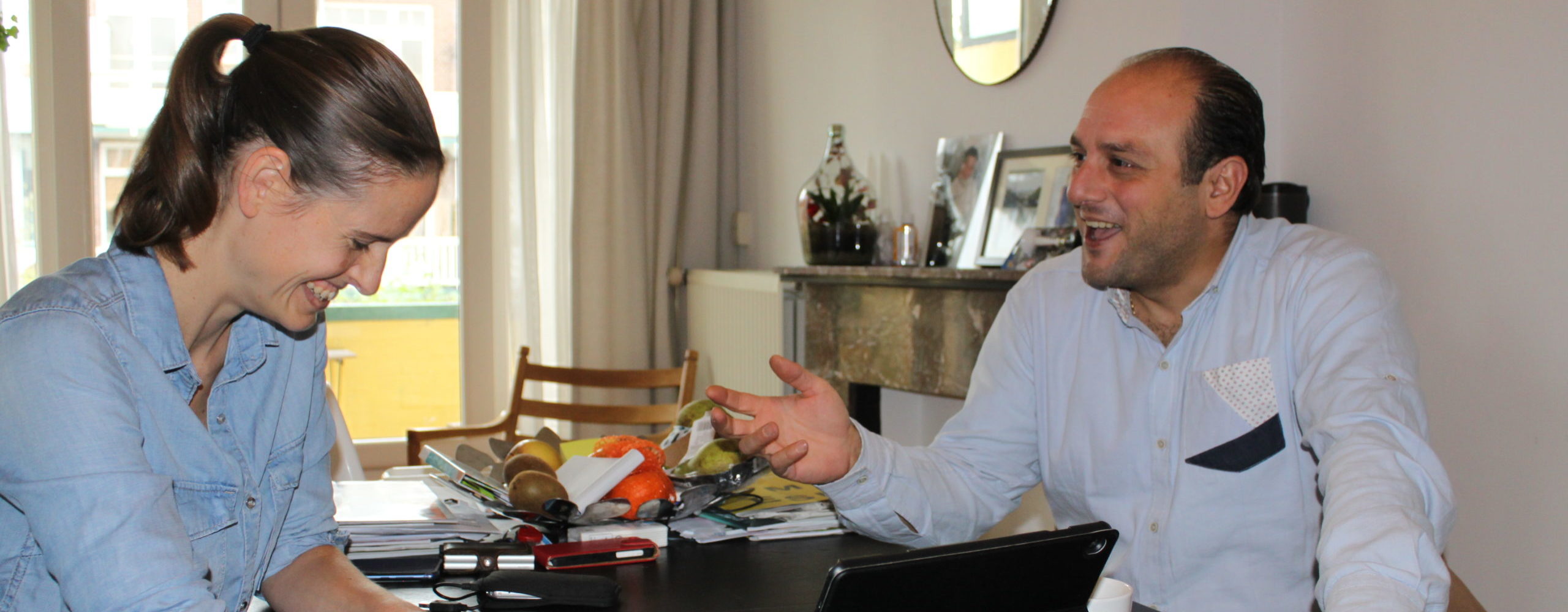



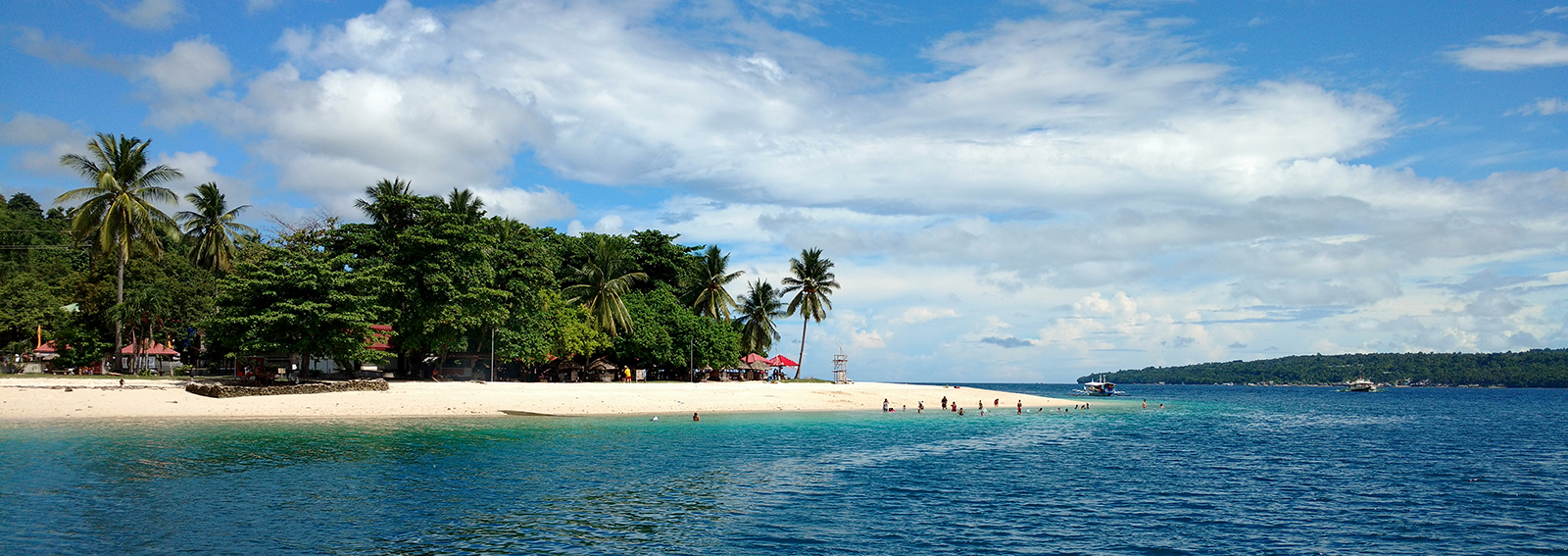
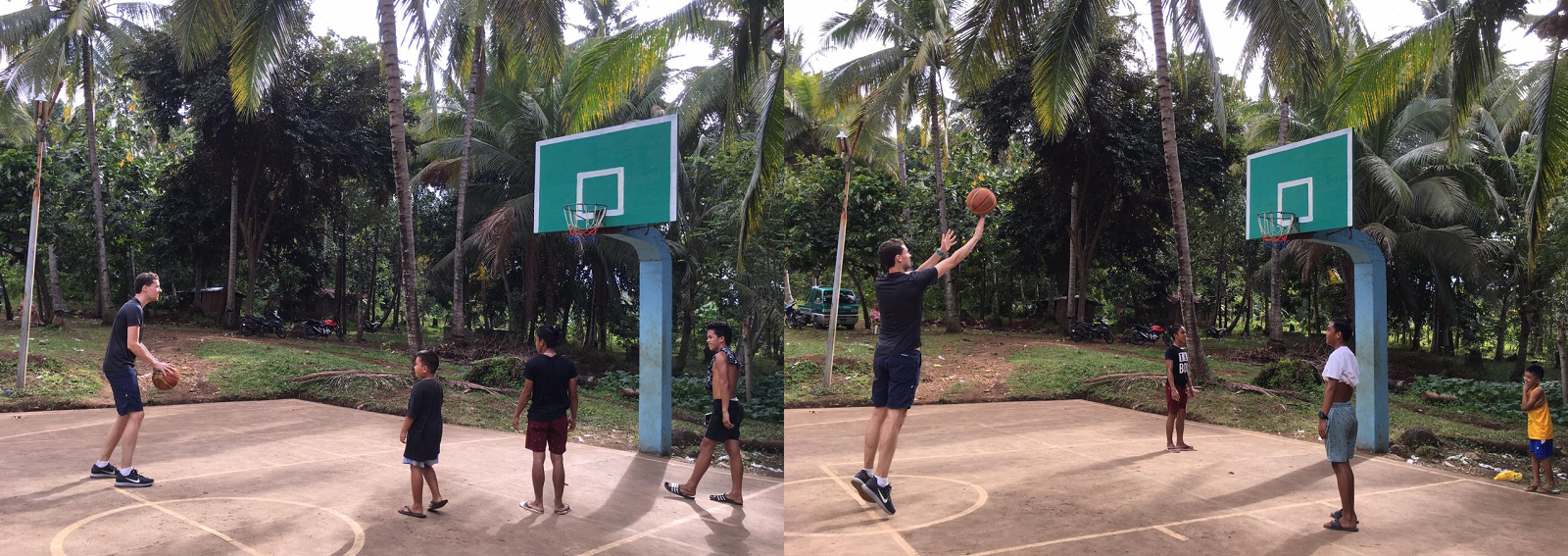

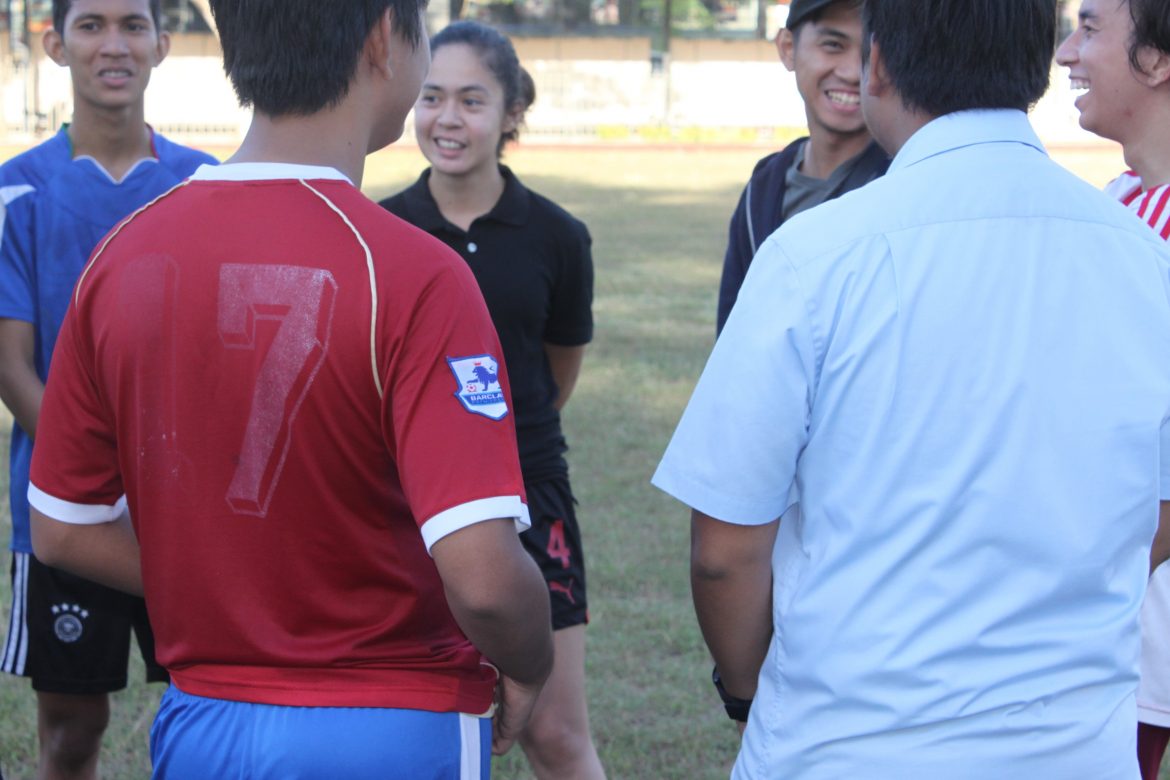
Wat een geweldig artikel.